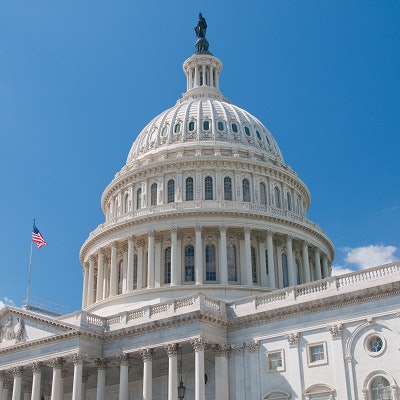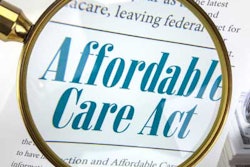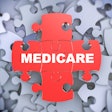
A bill introduced in the U.S. House of Representatives on October 31 would remove the mandate for dentists to become a Medicare provider for their patient's prescriptions to be reimbursed by Medicare Part D. This bill would theoretically allow older Americans a wider range of dentists to choose from.
The bill, HR 4169, was introduced by Rep. Kenny Marchant (R-TX). In a November 1 letter in support of the bill to the House Ways and Means Committee, ADA President Joseph Crowley, DDS, and Executive Director Kathleen O'Loughlin, DMD, MPH, noted that this bill would allow older Americans access to dentists of their choice.
"Without the relief provided under [this] bill, many seniors will not have access to the dental care they pay for in their Medicare Advantage plan from the dentists of their choice or the prescription coverage they are promised when they enroll in Part D," they wrote.
ACA origin
Under the Patient Protection and Affordable Care Act (ACA), the U.S. Centers for Medicare and Medicaid Services (CMS) had the option of requiring all healthcare practitioners, not just dentists, who write prescriptions to Medicare Part D beneficiaries to either enroll in or to opt out of Medicare Part B. If dentists enrolled, they agreed to abide by the program's regulations and guidelines, including the possibility of an audit and a commitment to help fight fraud in the program. As previously reported, this mandated provider program is not scheduled to go into effect until 2019.
“Under the current CMS rule, there are no good options for dentists and their patients.”
Dentists who choose to opt out, however, are not able to participate in Medicare Advantage plans, potentially limiting their patient population and reimbursement opportunities. About 100,000 dentists participate in this program, according to CMS.
The current law left dentists and their patients in a difficult position, stated Drs. Crowley and O'Loughlin in their letter.
"Under the current CMS rule, there are no good options for dentists and their patients," they wrote.
The fraud aspect of the current law also is a concern for the ADA leadership.
"There are no legitimate fraud enforcement requirements that necessitate the inclusion of dentists who do not participate in Medicare under the CMS rule," they wrote. "State licensing boards grant the authority to practice, and they maintain records on the identities of licensed dentists in good standing within each state. The boards are, and will continue to be, the main investigative and disciplining body for prescribing authority."
The ADA has consistently opposed this provider requirement, saying it placed an unnecessary administrative burden on dentists and their Medicare-eligible patients.
In a statement on his website, Rep. Marchant noted that this bill would help ensure older Americans would receive high-quality healthcare.
"This is just the latest step in ensuring access to high-quality care for seniors in North Texas and throughout America," he stated.



















